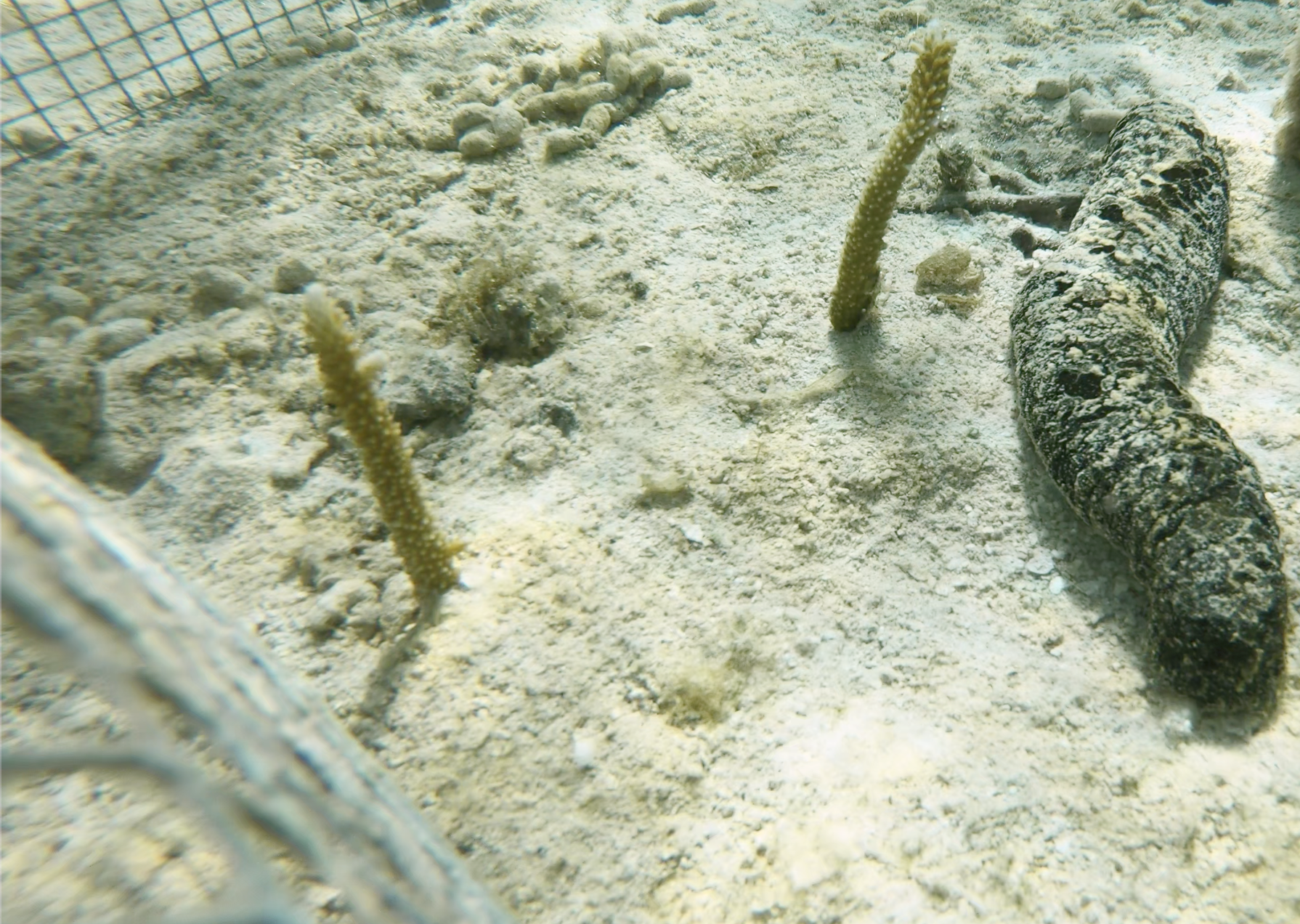Project title: Natural processes to suppress coral disease in a changing ocean
Project lead: Prof. Mark E. Hay
Co-applicants: Dr. Cody Clements, Prof. Guilherme Ortigara Longo
Countries involved: USA, Brazil
Takes place: Florida, the US Virgin Islands and Brazil
Supporting institutions: Georgia Institute of Technology, Instituto Coral Vivo
Total budget: USD $891,743
Duration: 36 months
Project overview
Coral diseases have caused tremendous coral declines over recent decades, with several diseases worsening due to ocean warming and pollution. The Caribbean, in particular, is known as a “hot spot” for coral diseases and has the highest reports of diseases globally. While no single cure exists for coral diseases, some approaches have been shown to halt the spread of diseases or reduce lesion size.
In the Pacific, the presence of sea cucumbers strongly suppressed the lethal white band disease – a sediment-associated disease – among corals in contact with the seafloor. Ongoing studies suggest this disease is bacterial (possibly Vibrio spp.) and is exacerbated by organic enrichment from dislodged seaweeds. Over two centuries of intensive sea cucumber harvesting have left tropical ocean areas depleted of these natural janitors, reducing a key mechanism of disease suppression. Although data remain limited, sea cucumber-driven control of sediment-associated coral diseases is likely broadly applicable across species. This project will explore the feasibility of harnessing natural, scalable biotic interactions to combat coral diseases in the Caribbean, including testing the efficiency of various sea cucumbers to suppress sediment associated disease and utilizing disease-resistant corals to restore degraded reefs.
Specific objectives
- Identify the factors driving coral disease caused by sediment-associated pathogens, including the role of sea cucumbers and organic inputs (e.g., dislodged seaweeds, river discharges).
- Test natural solutions to suppress or cure coral diseases, such as:
o Protecting or reintroducing native sea cucumbers.
o Identifying corals resistant to sediment-associated pathogens.
How the objectives will be met
The role of sea cucumbers and organic inputs:
- 3-5 species of corals will be outplanted in contact with the seafloor in enclosures where sea cucumbers are present or absent
- Monitor coral colonies every 2 days for signs of disease and estimates of % tissue loss.
- The experiments will be carried out in areas with different quantities of seaweed organics inputs.
After testing and optimizing approaches, the experiments will take place across a latitudinal gradient running from South Florida to sub-tropical Brazil.
Impact of the project
The outcomes of this project will provide natural resource managers and conservation organizations with actionable tools to enhance reef health. By collaborating directly with coral conservation and outplanting groups, the findings will be rapidly disseminated and readily integrated into ongoing restoration efforts. The partners will engage citizen volunteers, amplifying the project’s impact through public education and community involvement. Additionally, the project will support the training of PhD students, building the next generation of coral conservation experts. By conducting experiments across multiple latitudes, the team will also assess the broader applicability of the results, ensuring their relevance to diverse reef regions worldwide.
Major highlights
- Field experiments will be conducted across multiple regions, spanning a broad latitudinal gradient.
- Three to five coral species (to be determined) and three sea cucumber species (Holothuria floridana, Holothuria mexicana, and Isostichopus badionotus) will be tested.
- Findings will be shared with at least six local academic, conservation, and management groups.
Photo credits: Guilherme Longo

